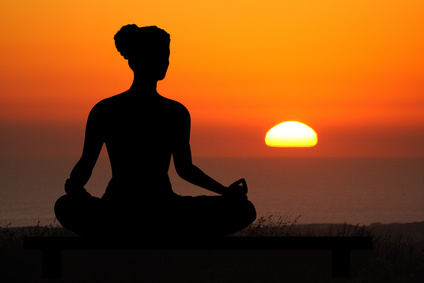
By now, almost everyone has heard talk of the benefits of meditation. What used to be a primarily spiritual practice has transformed into a popular heath phenomenon for the religious and non-religious alike. Indeed, psychologists, research scientists, business executives and celebrities have all praised meditation as a force for good.
Even though it is widely known that meditation is beneficial, some people are still hesitant to try it, either because they worry they won’t be able to do it properly or because they think the benefits are exaggerated or purely imagined. “How good could it really be?” you might ask.
If you’re wondering whether it might benefit you to try meditation, here’s a hint: it probably will. Not only do many people find meditation to be spiritually and personally enriching, it has also been scientifically shown to improve mental and physical health. The best part is, it’s free and easier than you might think. All you need to get started is yourself!
Maybe you’ll find that meditation just isn’t for you, and that’s totally fine. But it’s at least worth giving it a try if you’re hoping to improve your health and your sense of well-being. Here are a few lesser-known reasons why meditation might be one of the best things you can do for yourself.
1. It Makes You Physically Healthier
One thing you might not know about meditation is that it has the potential to make you physically healthier.
Studies have found that the practice of meditation and other mindful activities like yoga and Tai Chi can decrease risk for heart disease, lower blood pressure, reduce inflammation and boost immune responses to some viruses and vaccinations.
The heightened immune response in particular might have something to do with the way meditation helps lower stress and depression, which both heavily tax the immune system.
So, if you’re hoping to get sick less often while feeling better overall, meditation might be for you.
2. It Improves Willpower and Self-Control
Meditation is increasingly being considered a powerful treatment for addiction recovery and mental health problems. This is because, by asking you to pay attention to the ebb and flow of thoughts, feelings and impulses, meditation can make you more equipped to handle and respond positively to negative feelings.
One type of meditation called Vipassana was found to be particularly effective in helping alcohol and drug users control cravings. The practice, which teaches people to view all things as temporary and passing, helped users resist their cravings and implement positive alternatives because they understood their craving would pass.
Though not everyone may need to use meditation as a method of recovery, it may help anyone improve their willpower and self-control.
3. It Builds Compassion
Loving-kindness meditation, also called metta, focuses on building compassion for the self and others. It’s part of the Buddhist tradition for growing love and empathy, but metta can be used by anyone.
Used as a treatment, this kind of meditation has the potential to help improve relationships, boost self-esteem and generally encourage compassion. Though more research on loving-kindness meditation needs to be done, there’s a chance that it could help you feel more connected to others.
4. It Has Lasting Impacts
Meditation can help increase happiness, decrease feelings of anxiety and depression and improve mental health overall. However, these benefits last long after the meditation practice itself.
Practicing meditation can actually make lasting changes to your brain — positive changes, of course. It can grow grey matter in the brain associated with creativity and empathy, and it can also decrease the density of brain tissue related to anxiety. This means that not only will you feel more relaxed and happier while meditating, you’ll also be less vulnerable to stress going forward.
It’s clear to scientists that the benefits of meditation aren’t exaggerated. In fact, it’s a powerful tool for anyone hoping to improve their mental and physical well-being.
If you’re interested in trying meditation, we highly suggest you give it a shot. You can find tons of free resources for meditation online or enlist a teacher to guide you. After a little practice, you might find that meditation makes a big difference in many aspects of your life.





